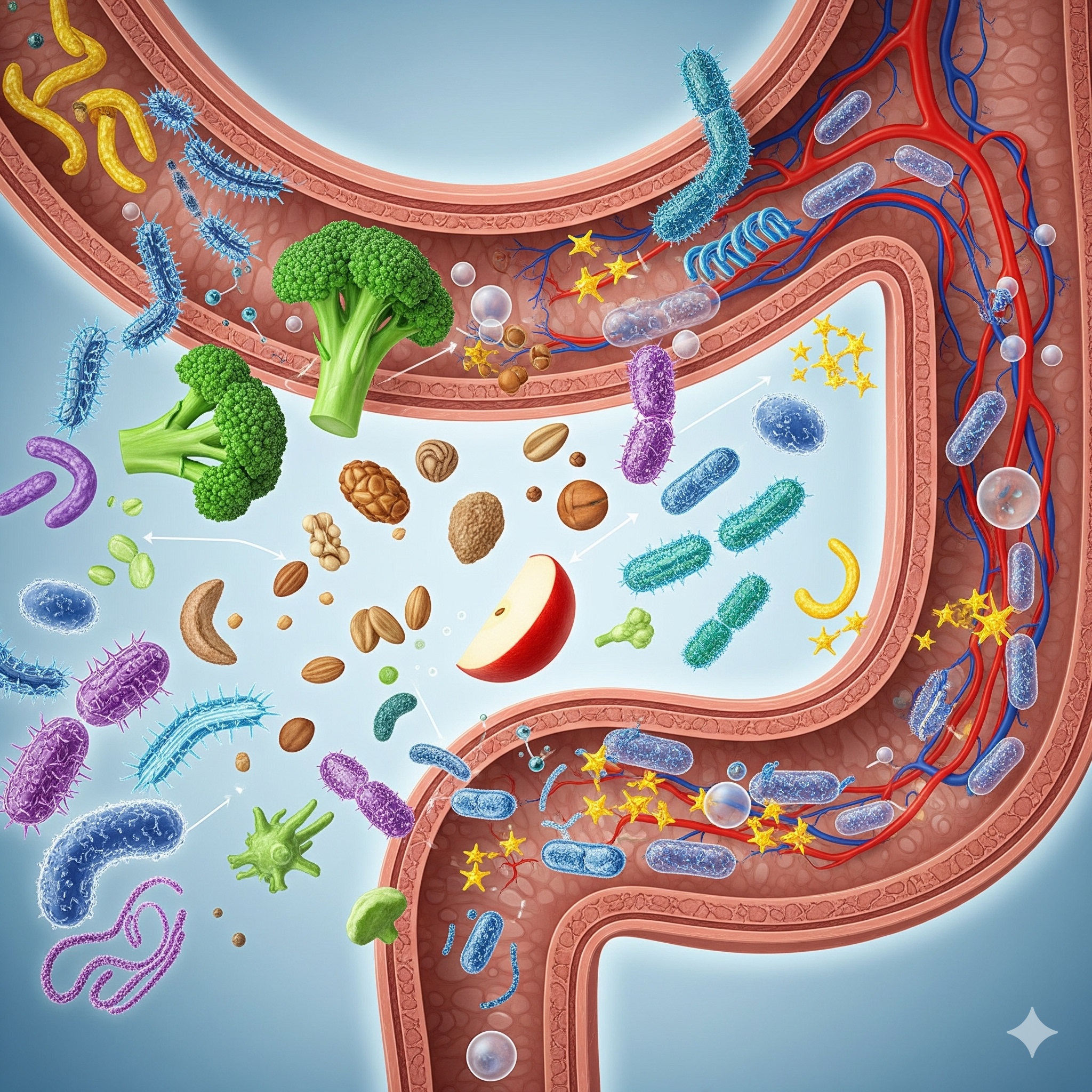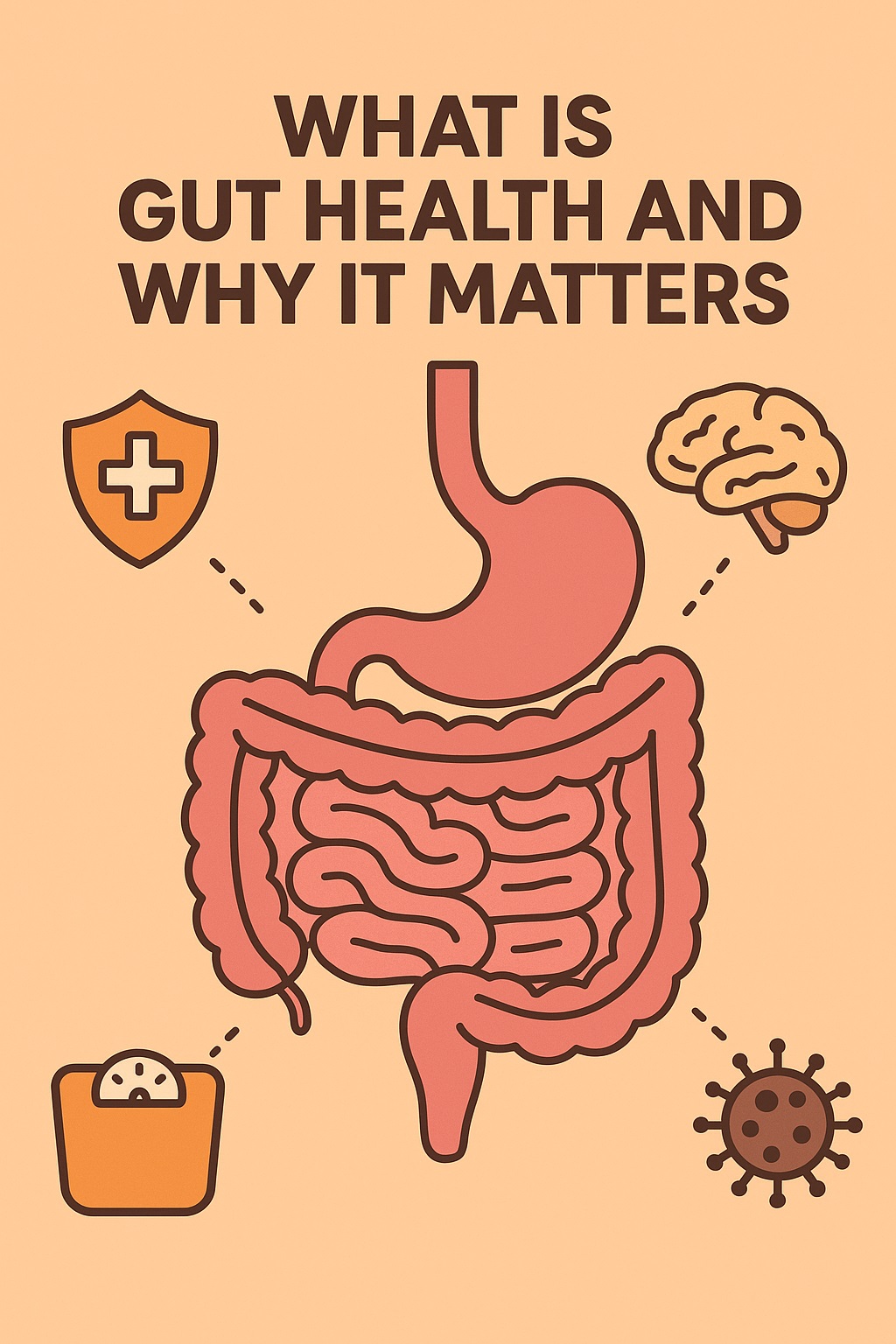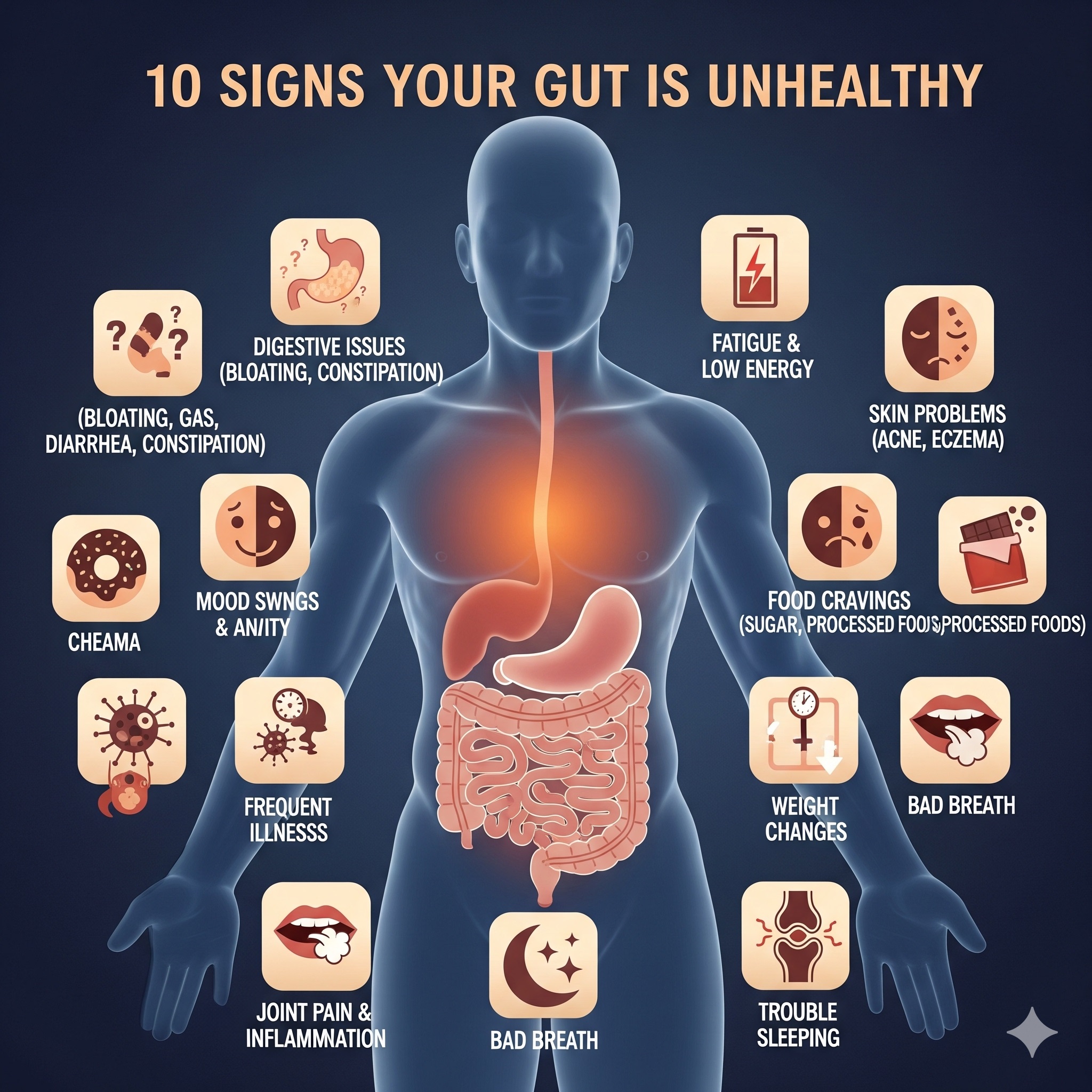In recent years, scientists and health enthusiasts alike have been paying closer attention to gut flora — also known as the gut microbiome. This microscopic community of gut bacteria has been linked to everything from proper digestion to mood, immunity, and even weight management. But what exactly is gut flora, and why does it matter so much for our health?
In this article, we will explore what the gut microbiome is, how it supports digestion, what can harm it, and how you can naturally improve your gut health.
What Is Gut Flora?
Gut flora refers to the trillions of microorganisms — mostly bacteria — that live in your gastrointestinal tract. Collectively, they are called the gut microbiome. These microbes include:
- Beneficial bacteria (such as Lactobacillus and Bifidobacterium)
- Neutral bacteria that coexist without causing harm
- Potentially harmful bacteria that can overgrow if the balance is disrupted
This community is incredibly diverse. In fact, there are more bacterial cells in your gut than human cells in your entire body. Your gut flora is unique, much like a fingerprint, shaped by genetics, diet, environment, and lifestyle.
The Role of Gut Flora in Digestion
The gut microbiome plays a central role in breaking down food and absorbing nutrients. Here’s how:
1. Breaking Down Complex Foods
Certain fibers and carbohydrates are indigestible by human enzymes. Gut bacteria ferment these fibers, producing short-chain fatty acids (SCFAs) like butyrate, propionate, and acetate. These SCFAs:
- Provide energy to intestinal cells
- Support a healthy gut lining
- Help regulate inflammation
2. Supporting Nutrient Absorption
Gut flora assists in the production and absorption of key nutrients such as:
- Vitamin K
- B vitamins (including folate and biotin)
- Essential amino acids
Without a healthy balance of bacteria, your body may struggle to absorb these nutrients efficiently.
3. Maintaining a Healthy Gut Barrier
The gut lining acts as a filter, allowing nutrients into the bloodstream while keeping harmful substances out. A well-balanced microbiome helps maintain the integrity of this barrier, reducing the risk of “leaky gut.”
4. Regulating Bowel Movements
Beneficial bacteria help keep your digestive system moving. They regulate stool consistency and frequency, helping prevent constipation or diarrhea.
Gut Bacteria and Immune Function
About 70% of the immune system is located in the gut. Gut flora plays a vital role in training the immune system to distinguish between harmful pathogens and harmless substances. When the microbiome is balanced, it can:
- Prevent overreactions (such as food sensitivities)
- Reduce systemic inflammation
- Defend against harmful bacteria and viruses
Factors That Affect Gut Flora
Your microbiome is sensitive and can be influenced by many lifestyle and environmental factors.
Diet
- High-fiber foods (fruits, vegetables, whole grains) encourage beneficial bacteria.
- Processed foods, excess sugar, and unhealthy fats can promote harmful bacterial overgrowth.
Antibiotics
While life-saving, antibiotics can wipe out both harmful and beneficial bacteria, sometimes leading to dysbiosis (an imbalance of gut bacteria).
Stress and Sleep
Chronic stress and poor sleep have been shown to negatively impact microbiome diversity.
Age
The gut microbiome changes over a lifetime. Babies are colonized during birth, diversity peaks in adulthood, and can decline with age.
Signs of an Unbalanced Microbiome
When gut flora becomes imbalanced, you might experience:
- Bloating or excessive gas
- Irregular bowel movements (constipation or diarrhea)
- Food intolerances
- Frequent infections
- Fatigue or brain fog
While these symptoms can have many causes, they may indicate that your gut bacteria need support.
How to Improve Gut Flora Naturally
The good news is that you can actively support your gut microbiome with simple lifestyle choices.
1. Eat a Fiber-Rich Diet
Include prebiotic foods that feed beneficial bacteria, such as:
- Garlic
- Onions
- Bananas
- Asparagus
- Oats
2. Add Probiotics
Probiotics are live beneficial bacteria found in:
- Yogurt
- Kefir
- Sauerkraut
- Kimchi
- Fermented pickles
These foods help replenish and diversify your gut flora.
3. Reduce Processed Foods and Sugar
Limiting refined sugar and highly processed foods helps prevent harmful bacterial overgrowth.
4. Manage Stress
Practice relaxation techniques such as meditation, deep breathing, or gentle exercise like yoga.
5. Get Enough Sleep
Aim for 7–9 hours of quality sleep to allow your microbiome and body to restore balance.
6. Stay Active
Regular physical activity has been shown to promote a diverse and resilient gut microbiome.
Gut Flora and Mental Health
Emerging research shows a strong connection between the gut and the brain — known as the gut-brain axis. Gut bacteria produce neurotransmitters like serotonin, which influence mood and stress response. Supporting a healthy microbiome may help:
- Improve mood
- Reduce anxiety
- Enhance cognitive function
When to Seek Professional Advice
If you experience chronic digestive issues, severe bloating, persistent diarrhea, or unexplained weight loss, consult a qualified healthcare provider. While improving gut flora can help, some conditions (such as IBS, IBD, or celiac disease) require professional evaluation.
Your gut flora is far more than just bacteria — it is a living ecosystem that affects digestion, immunity, and overall well-being. By eating a fiber-rich diet, incorporating probiotics, and making healthy lifestyle choices, you can support a balanced gut microbiome and enjoy smoother digestion and better health.
Take care of your gut, and it will take care of you.




